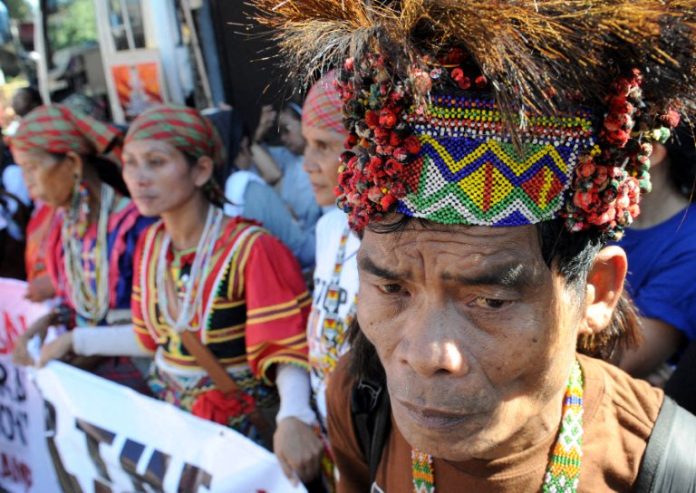Nearly 238,000 Filipino Indigenous People (IPs) faced human rights violations (HRVs) related to land conflicts in their territories this year, according to a report released by the Legal Rights and Natural Resources Center (LRC).
The State of Indigenous People’s Address Report (SIPA 2024) documented 73 cases of HRVs, marking a staggering 428% increase compared to the previous two-year period.
“Virtually all the cases we monitored in this report involved conflicts with ancestral domains, with over 55 percent involving active violations of the Free, Prior and Informed Consent (FPIC) process, which is enshrined in the Indigenous People’s Rights Act,” said Leon Dulce, Campaigns Support and Linkages coordinator of LRC.
The report highlighted the persistent lack of recognition and respect for Indigenous rights over ancestral lands.
Government data revealed that only one in every four listed Certificates of Ancestral Domain Titles (CADTs) has been fully approved, leaving 78% of applications pending. This delay denies Indigenous communities the necessary legal protections for their lands.
LRC pointed to the Joint Administrative Order for tenurial instruments as a key contributor to the backlog, exacerbating land conflicts and marginalizing Indigenous communities.
The LRC report raised alarm over the potential for worsening violations of FPIC rights due to the global push for energy transition projects.
Approximately 56% of the country’s designated Competitive Renewable Energy Zones (CREZ) are likely to overlap with ancestral domains.
“The Marcos administration wants to fast-track many of these projects through policies that can undermine the FPIC process and other mechanisms for Indigenous public participation. Among these include railroaded revisions to the FPIC guidelines, in particular cutting short FPIC for energy projects, and proposed new FPIC protocols for forest carbon credits,” Dulce said.
This trend is expected to exacerbate other land pressures, including the expansion of coconut plantations for biofuels and the inclusion of around 8 million hectares of forest-classified areas in carbon credit schemes.
Despite the challenges, Indigenous communities have continued to assert their rights. In July 2024, Indigenous representatives engaged with the UN Special Rapporteur on the Rights of Indigenous People, a significant move in bringing international attention to the issue.
Indigenous groups also leveraged the Kunming-Montreal Global Biodiversity Framework to advocate for the recognition of their rights through the Indigenous Peoples Biodiversity Strategy and Action Plan.
LRC urged the Philippine government to prioritize the processing of CADTs and safeguard FPIC rights instead of fast-tracking energy transition projects. These measures, the group emphasized, are critical to protecting Indigenous territories and the environmentally vital landscapes they encompass.









